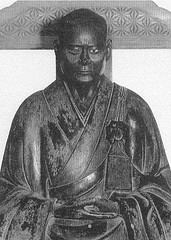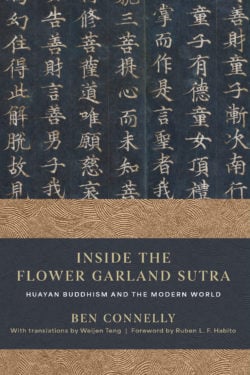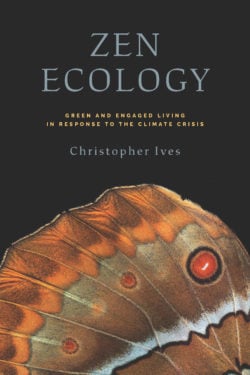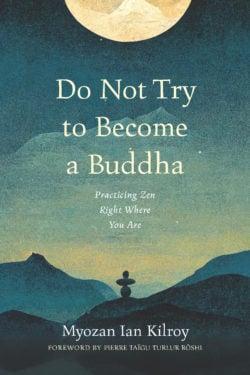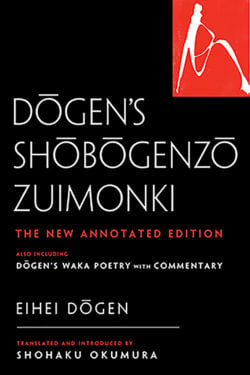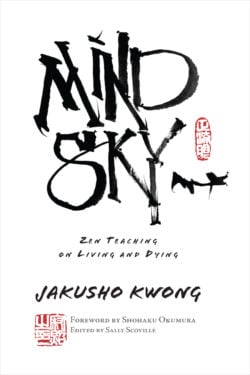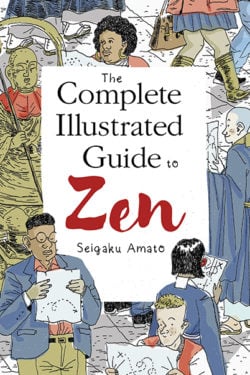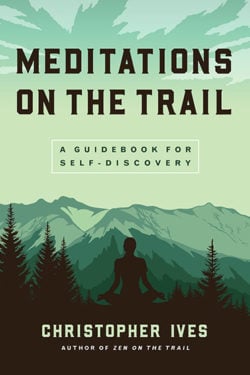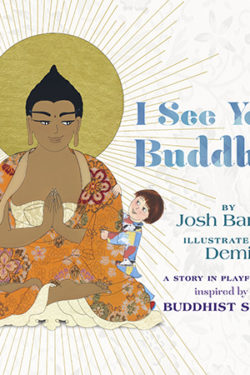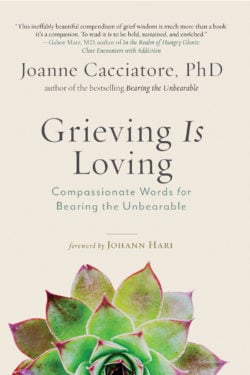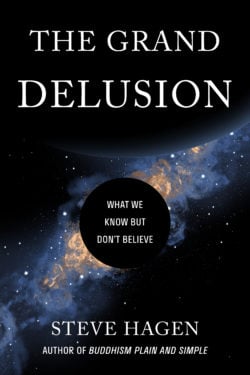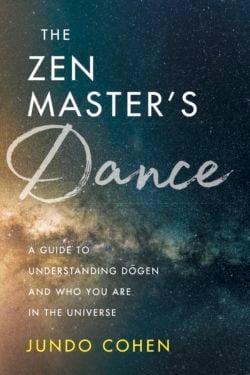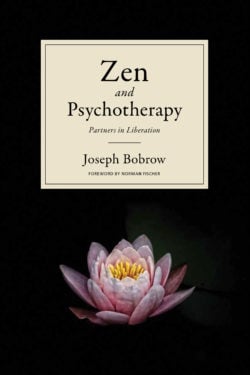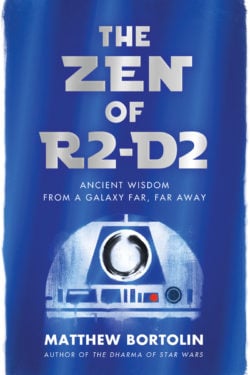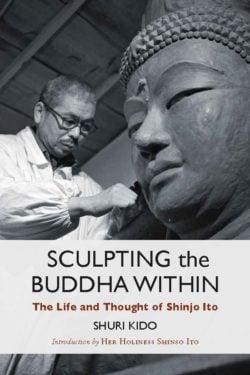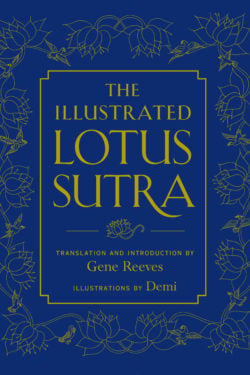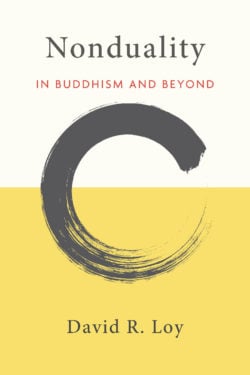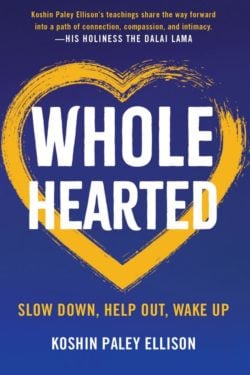Arthur Braverman has lived in Tokyo and in Kyoto, where he studied Zen at Antaiji Temple. He is the author of A Still Quiet Road as well as a translator of Buddhist texts. He lives in Ojiai, California, where he teaches at the Oak Grove School of the Krishnamurti Foundation of America.
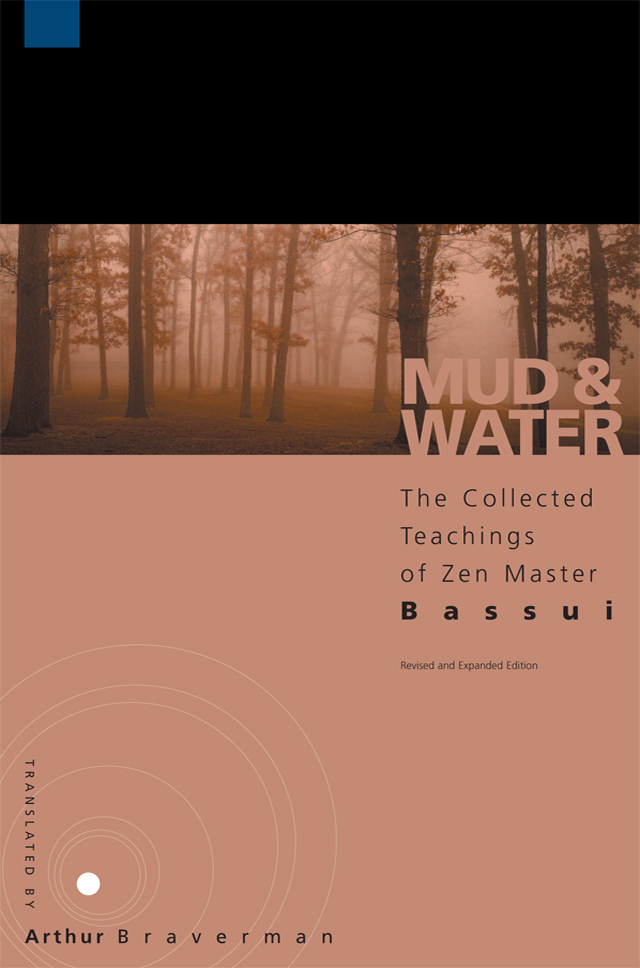
“This sparkling translation fully captures Bassui's unique vigor and insight and throws new light on an often neglected period of Zen's history.”—Peter Haskel, author of Bankei Zen
MUD AND WATER
The Collected Teachings of Zen Master Bassui
The print edition of this book is out of stock; please purchase the ebook version or check back later. You can also become a Wisdom Experience member to read many of our books online—click here to join now.
- Add to Cart eBook $9.99
The fourteenth-century Zen master Bassui was recognized as one of the most important Zen teachers of his time. Accessible and eloquent, these teachings cut to the heart of the great matter of Zen, pointing directly to the importance of seeing our own original nature and recognizing it as Buddhahood itself. Bassui is taking familiar concepts in Buddhism and recasting them in an essential Zen light.
Though he lived centuries ago in a culture vastly different from our own, Zen Master Bassui speaks with a voice that spans time and space to address our own modern challenges—in our lives and spiritual practice.
Like the revered Master Dogen several generations before him, Bassui was dissatisfied with what passed for Zen training, and taught a radically reenergized form of Zen, emphasizing deep and direct penetration into one’s own true nature. And also like Dogen, Bassui uses powerful and often poetic language to take familiar Buddhist concepts recast them in a radically non-dual Zen light, making ancient doctrines vividly relevant.
This edition of Mud and Water contains several teachings never before translated.
Discover More
Inside the Flower Garland Sutra
Available early! Use code fgs20 and get 20% off Inside the Flower Garland Sutra through July 14.
A Soto Zen teacher explores the core teachings of the ancient Flower Garland school of Buddhism through an innovative and engaging narrative showing how to put these teachings into practice.
Huayan Buddhism arose in the sixth century in China rooted in the Mahayana Flower Garland Sutra. The teachings of Huayan and the sutra that inspired it had a profound influence on Chan and Zen. Huayan is relational, practical, and positive. Its emphasis on interdependence, celebration of the sensual world, and diversity of people and practices provides inspiration for what Thich Nhat Hanh called “engaged Buddhism”.
With Inside the Flower Garland Sutra Zen teacher Ben Connelly explains the significance of Huayan teachings for Buddhist practice. Each chapter is a commentary on one of the thirty lines of Uisang’s “Song of Dharma Nature”—a seminal Korean text that summarizes key aspects of Huayan thought—thus providing a broad overview of Huayan teachings and their practical implications for contemporary life, with a mix of testimonies from real-life situations and references to influential Buddhist texts.
Arising fifteen hundred years ago, Huayan has made a deep impact on East Asian Buddhism, and has much to offer during this era when many folks see ever-deepening divisions. Connelly explores how Huayan offers particular wisdom for those concerned about how to care for their own lives as they work to end harms such as ecological devastation, poverty, militarism, addiction, marginalization, and exploitation.
Zen Ecology
Discover a way of living that can help you slow down and stay grounded—and at the same time reduce your ecological impact and engage more fully with the climate crisis.
It may seem as though living ecologically and engaging in activism sacrifices our own enjoyment and happiness on the altar of doing the right thing. In this book, professor, naturalist, and Buddhist author Christopher Ives offers an alternative: a way of living that can actually be more fulfilling than the modern consumerist lifestyle. Rather than deprivation, it can bring us richness.
In Zen Ecology, Chris outlines his environmental ethic as a series of concentric circles, beginning with ourselves and then moving outward into our communities, all the while focusing on spaciousness, mindfulness, generosity, and contentment. At the individual level, we deal with distraction, clutter, and ecological harm. Here, Chris offers ways to help us pay attention, simplify our lives, and lower our impact. Then, we explore how to envision our home as a “place of the Way,” with Zen monastic life as a model for this—without having to be a monk! Next, we realize our embeddedness in nature and emplace ourselves in community with others, including other forms of life. Finally, we build on this basis to engage in activism to create a world that is more supportive of ecological health and spiritual fulfillment.
In this way, we avoid the two extremes of apathy and burnout, and uncover a way of living that is simple, joyful, embedded in nature, connected to others in community, and supportive of collective action.
You may also be interested in Chris’s other books, Zen on the Trail, which explores the broad question of how to be outside in a meditative way, and Meditations on the Trail, which offers do-anywhere meditations that will help you deepen your connection to nature and yourself.
Do Not Try to Become a Buddha
A Zen Buddhist priest paints a picture of Zen in Ireland in this collection of short essays.
In this collection of short essays, Irish Soto Zen priest Myozan Ian Kilroy describes how he came to practice Zen, introduces some basics of Zen philosophy, and recalls the challenges of establishing a Zen Buddhist community in Catholic-dominated Ireland. Along the way, he explores the rituals and practices that Zen brings to everyday life, from holidays to weddings to birth ceremonies to funerals. A former journalist, Rev. Myozan’s clear yet entertaining storytelling style paints a clear picture of how Zen has adapted to the culture and traditions of Ireland.
Dogen’s Shōbōgenzō Zuimonki
Discover the teachings of the preeminent Zen Master Dōgen in his own words, written down by his Dharma successor, Koun Ejō. This edition includes both the Shōbōgenzō Zuimonki and translations of and commentary on Dōgen’s luminously evocative waka poetry.
Distinct from Dōgen’s similarly titled magnum opus (simply called the Shōbōgenzō), the Shōbōgenzō Zuimonki can be read as a highly practical manual of Buddhist practice. Consisting of straightforward and accessible teachings and making more limited use of the allusion, wordplay, and metaphor that characterize the essays in the Shōbōgenzō, this work is an essential read for any student of Zen Buddhism. Among the many topics covered, Dōgen especially emphasizes the following points: seeing impermanence, departing from the ego-centered self, being free from greed, giving up self-attachment, following the guidance of a true teacher, and the practice of zazen, specifically shikantaza, or “just sitting.” Additionally, this translation of the Shōbōgenzō Zuimonki has extensive notes, which help to provide you with a new way of approaching the text.
The collection of waka poems included in this volume are a beautiful artistic expression of the Dharma. Rarely seen in this large of a collection or with commentary, this poetry offers unique insight into an important expression of Dōgen’s teachings.
By the spring wind
my words are blown and scattered
people may see them
the song of flowers
These teachings, which have informed teachers and practitioners alike throughout the centuries, will deepen your knowledge, understanding, and experience of the Sōtō Zen tradition.
Mind Sky
“In Zen meditation, anything that comes in your mind will eventually leave, because nothing is permanent. A thought is like a cloud moving across the blue sky. Nothing can disturb that all-encompassing vastness. This is the Dharma.”
In a collection of talks and anecdotes, Jakusho Kwong-roshi, a Dharma successor of Shunryu Suzuki-roshi, presents his approach to Buddhist teaching. Containing photos of Kwong-roshi with his teachers, as well as a selection of his vibrant calligraphy, Mind Sky explores the profound beauty of Zen history and practice, nature, and the philosophy of the ancient Zen master Eihei Dōgen.
With an elegant simplicity, Kwong-roshi shows how Zen is experiential rather than intellectual. And with persistent practice, realization is already yours.
The Complete Illustrated Guide to Zen
The Complete Illustrated Guide to Zen offers a comprehensive overview of Soto Zen Buddhism in a delightfully captivating way. Complete with dynamic, detailed illustrations, Soto Zen Priest Seigaku Amato uses a semi-narrative style to take you on a visual tour of Buddhism and, using specifics to illuminate universals, dives deep into the practices and forms of Soto Zen.
Whether you are just taking your first step or have been practicing Zen for years, this creative and profound book will be a constant companion and guide on your journey as it explores topics such as:
- A brief history of Buddhism
- An iconographic overview of various buddhas and bodhisattvas
- An introduction to the various practices of Zen including meditation (zazen), work practice (samu), and meditative eating (oryoki)
- A what’s what of holidays, ceremonies, temple instruments, and religious vestments
- A how-to guide for setting up a home altar
“This is a cute book! But it’s not just cute, it’s also deep and profound, and is one of the best guides to Zen practice I have ever come across. The illustrations are delightful and the written sections are clear and easy to understand. I give it a million zillion stars!”—Brad Warner, author of Hardcore Zen
“I loved this book and smiled the whole way through. But don’t be fooled by its whimsy! There’s a wealth of experience, knowledge, and devotion behind these illustrations. This book is a perfect guide for a beginning Zen student and makes a delicious snack for the more advanced practitioner.”—Gesshin Greenwood, author of Bow First, Ask Questions Later
Meditations on the Trail
Meditations on the Trail offers a rich array of do-anywhere meditations that will help you explore and deepen your connection to nature, and yourself, in new ways, making the most of your time on the trail.
This small book—perfect for throwing in a daypack or a back pocket as you head out for the trail—is filled with practices to take you into the heart of the natural world and uncover your most vibrant self. You’ll return home grateful, more aware of interconnection, and maybe just a little wiser.
You may also be interested in Chris’s other books, Zen on the Trail, which explores the broad question of how to be outside in a meditative way, and Zen Ecology, in which he reveals a way of living that can help you slow down, stay grounded, and deal with all that is flying at you—and at the same time can help you reduce your ecological impact and engage more effectively with the climate crisis.
I See You, Buddha
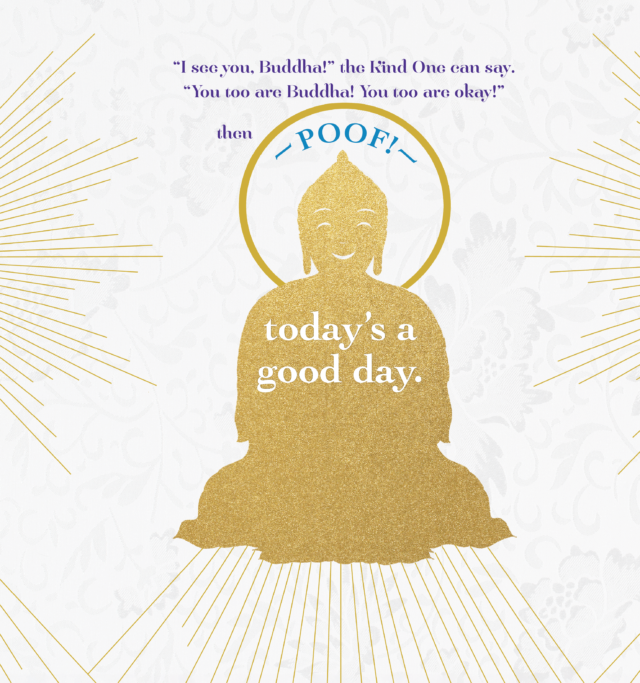
An instant classic, this book will help children (and their parents) learn patience and to see the good in everyone—including themselves! It will also help children meet difficult circumstances, such as being sick, doing chores, and not getting everything they want—and help them overcome low self-esteem and negative self-talk.
I See You, Buddha is based on a chapter in the Lotus Sutra, one of the most influential Buddhist texts worldwide—a classical scripture that has inspired a whole genre of works, especially in Japan, known as Lotus Literature. The Lotus Sutra teaches the way of the bodhisattva—a being engaged in compassionate, enlightened activity in the service of all—by offering examples of what this activity might look like in the world. One such model in the text is Bodhisattva Never Disrespectful (or Never Disparaging), who, despite troubling encounters with and even harsh treatment from others, bows down respectfully to everyone, recognizing their Buddha nature and honoring their own journeys along the bodhisattva path to enlightenment—whether they know they’re future buddhas or not!
Listen to author Josh Bartok as he reads I See You, Buddha in this video reading.
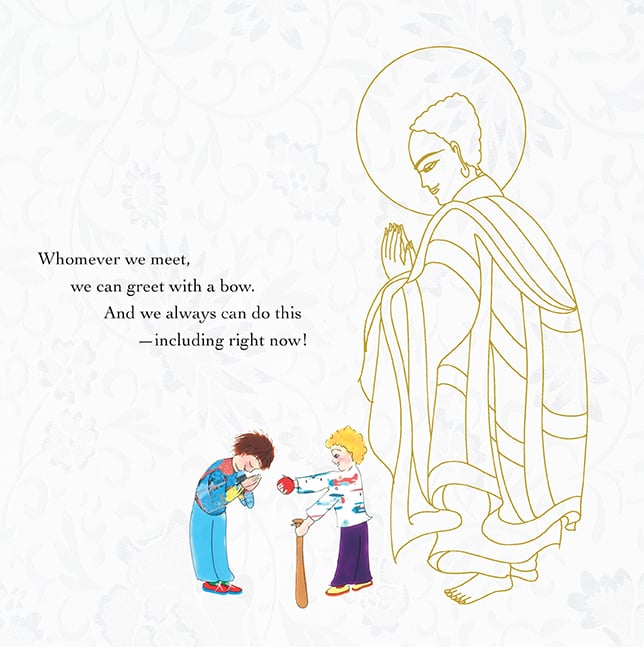
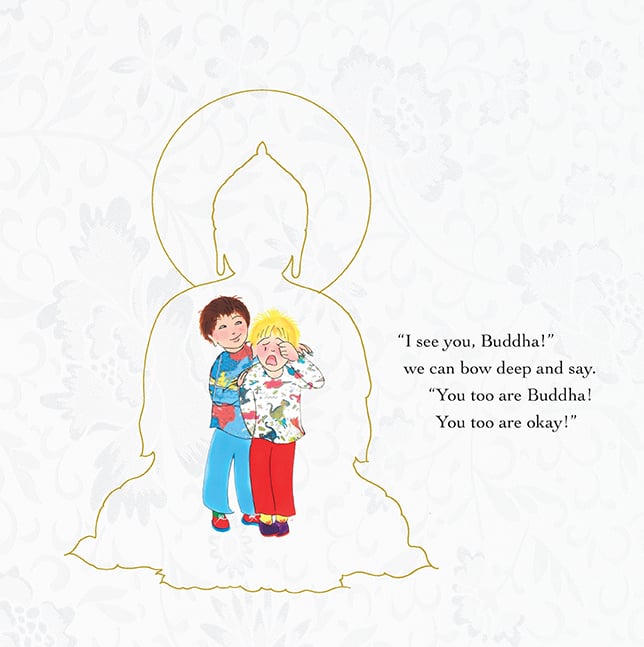
Grieving Is Loving
A book of poems, quotations, reflections, and stories from the author of one of the most beloved books on grief and loss.
This book is a companion to carry with you throughout your day, to touch in with and be supported by when bearing the unbearable pain of a loved one’s death—whether weeks or years since their passing.
In the style of a quote-a-day collection, this book from Wisdom’s bestselling author Joanne Cacciatore distills down the award-winning book Bearing the Unbearable into easy-to-access small chunks, and includes much brand-new material, including new prose and poems from Dr. Jo and other sources.
If you love, you will grieve—and nothing is more mysteriously central to becoming fully human.
Our culture often makes the bereaved feel alone, isolated, broken, and like they should just “get over it”—this book offers a loving antidote.
Open to any page of Grieving Is Loving and you’ll find something that will instantly help you feel not alone, while honoring the full weight of loss.
This book is comprised of quotations from Bearing the Unbearable, and other sources as well, plus an enormous amount of new material from Dr. Jo. Especially well-suited for the grieving mind that may struggle with concentration, just 30 seconds on any page will empower, hearten, and validate any bereaved person—helping give strength and courage to bear life’s most painful losses.
You can also explore Dr. Jo’s book, Bearing the Unbearable, its journal companion, Bearing the Unbearable: A Guided Journal for Grieving, as well her her Wisdom Academy course, Bearing the Unbearable, and her card deck, Cards for Bearing the Unbearable.
The Grand Delusion
In The Grand Delusion, bestselling author Steve Hagen drills deeply into the most basic assumptions, strengths, and limitations of religion and belief, philosophy and inquiry, science and technology. In doing so, he shines new light on the great existential questions—Why is there Something rather than Nothing? What does it mean to exist? What is consciousness? What is the nature of truth?—and does so from an entirely unexpected direction.
Ultimately, this book reveals how all of our fundamental questions stem from a single error, a single unwarranted belief—a single Grand Delusion.
The Zen Master’s Dance
A fresh take on how to read Dōgen.
In The Zen Master’s Dance, Jundo Cohen takes us deep into the mind of Master Dōgen—and shows us how to join in the great and intimate dance of the universe. Through fresh translations and sparkling teaching, Cohen opens up for us a new way to read one of Buddhism’s most remarkable spiritual geniuses.
Zen and Psychotherapy
This book is an intimate dialogue that examines the interplay of emotional and spiritual development through the lens of Zen Buddhism and psychotherapy. Zen and Psychotherapy artfully illuminates the intrinsic connections between the two practices, and demonstrates how the traditions can be complementary in helping to live a truly fulfilled and contented life.
Zen teacher and psychologist Joseph Bobrow deftly shows how the major themes of trauma, attachment, emotional communication, and emotional regulation play out in the context of Zen and of psychotherapeutic practice, and how, in concert, both provide a comprehensive, interactive model of fully functioning human life.
The Zen of R2-D2
Did you ever wonder why R2-D2 is
- always calm and cool under pressure,
- the key to the rebellion’s survival, and
- the one who never fails to save the day?
Could it be because he’s secretly a Zen master?
Discover your inner R2—and the truth about who you really are!
This delightful and illuminating romp unfolds in the form of a fictional dialogue between the author—a die-hard Star Wars devotee with a deep connection to Zen—and two cosplayers dressed as C-3PO and R2-D2 who insist on being called by their character names. Along the way, you’ll come to see what everyone’s favorite astromech can teach us about peace, happiness, and life’s true meaning.
Sculpting the Buddha Within
Sculpting the Buddha Within is the first major biography of Shinjo Ito, the founder of the Shinnyo-en tradition of Buddhism and one of the twentieth century’s most innovative spiritual teachers. Ito was schooled in Shingon, the millennium-old esoteric Buddhism of Japan, and used that as the basis for developing a unique lay practice grounded in the principles and concepts of the Mahayana version of the Nirvana Sutra.
Ito’s wish was to help his practitioners see their own potential for goodness so that they, too, would be inspired to work diligently to shape and give form to their inner buddha. Rather than encouraging his followers to believe in a fixed system of practice or beliefs, Ito taught how to live life in accordance with one’s buddha nature—and the gratitude, creativity, and happiness latent within it.
The Illustrated Lotus Sutra
The Lotus Sutra is regarded as one of the world’s great religious scriptures and most influential texts. It’s a seminal work in the development of Buddhism throughout East Asia and, by extension, in the development of Mahayana Buddhism throughout the world. Taking place in a vast and fantastical cosmic setting, the Lotus Sutra places emphasis on skillfully doing whatever is needed to serve and compassionately care for others, on breaking down distinctions between the fully enlightened buddha and the bodhisattva who vows to postpone salvation until all beings may share it, and especially on each and every being’s innate capacity to become a buddha.
This illustrated edition features more than 110 full-page and two-page illustrations by a world-renowned and award-winning artist, and brings the fantastical and image-filled world of the Lotus Sutra vividly to life. Demi’s illustrations are both classical and contemporary in feel, perfectly complementing Reeves’s masterful and modern translation.
Entangling Vines (Paperback)
The most contemporary of the the classic koan collections—representing centuries of practical refinement by Zen masters working with their students.
Entangling Vines is a translation of the Shumon Kattoshu, the only major koan text to have been compiled in Japan rather than China. Most of the central koans of the contemporary Rinzai koan curriculum are contained in this work. Indeed, Kajitani Sonin (1914–1995)—former chief abbot of Shokoku-ji and author of an annotated, modern-Japanese translation of the Kattoshu—commented that “herein are compiled the basic Dharma materials of the koan system.”
A distinctive feature of Entangling Vines is that, unlike the Gateless Gate and Blue Cliff Record, it presents the koans “bare,” with no introductions, commentaries, or verses. The straightforward structure of its presentation lends the koans added force and immediacy, emphasizing the Great Matter, the essential point to be interrogated, while providing ample material for the rigors of examining and refining Zen experience.
Containing 272 cases and extensive annotation, the collection is not only indispensable for serious koan training but also forms an excellent introduction to Buddhist philosophy.
Nonduality
The concept of nonduality lies at the very heart of Mahayana Buddhism. In the West, it’s usually associated with various kinds of absolute idealism in the West, or mystical traditions in the East—and as a result, many modern philosophers are poorly informed on the topic. Increasingly, however, nonduality is finding its way into Western philosophical debates. In this “scholarly but leisurely and very readable” (Spectrum Review) analysis of the philosophies of nondualism of (Hindu) Vedanta, Mahayana Buddhism, and Taoism, renowned thinker David R. Loy extracts what he calls “a core doctrine” of nonduality. Loy clarifies this easily misunderstood topic with thorough, subtle, and understandable analysis.
Wholehearted
“Intimacy is based on the willingness to open ourselves to many others, to family, friends, and even strangers, forming genuine and deep bonds based on common humanity. Koshin Paley Ellison’s teachings share the way forward into a path of connection, compassion, and intimacy.”
—His Holiness the Dalai Lama
Each of us has an enormous capacity for love—a deep well of attention and care that we can offer to ourselves and others. With guidance that is both simple and wholly transformative, Koshin Paley Ellison, Zen teacher and psychotherapist, shows us how to uncover it: pay attention, be of service, and be with others.
With this inspiring and down-to-earth book, drawn from the Zen precepts and illustrated with anecdotes from Koshin’s own life and practice, you’ll learn how to
- explore and investigate with your own core values,
- identify the mental habits that could be unconsciously hurting yourself and others, and
- overcome isolation.
Each chapter closes with a contemplation to help integrate the teachings into your life.
This book is about getting back in touch with your values, so you can live energetically, authentically, and lovingly. This is an invitation to close the gaps we create between ourselves and others—to wake up to ourselves and the world around us.
It’s time to live wholeheartedly.


